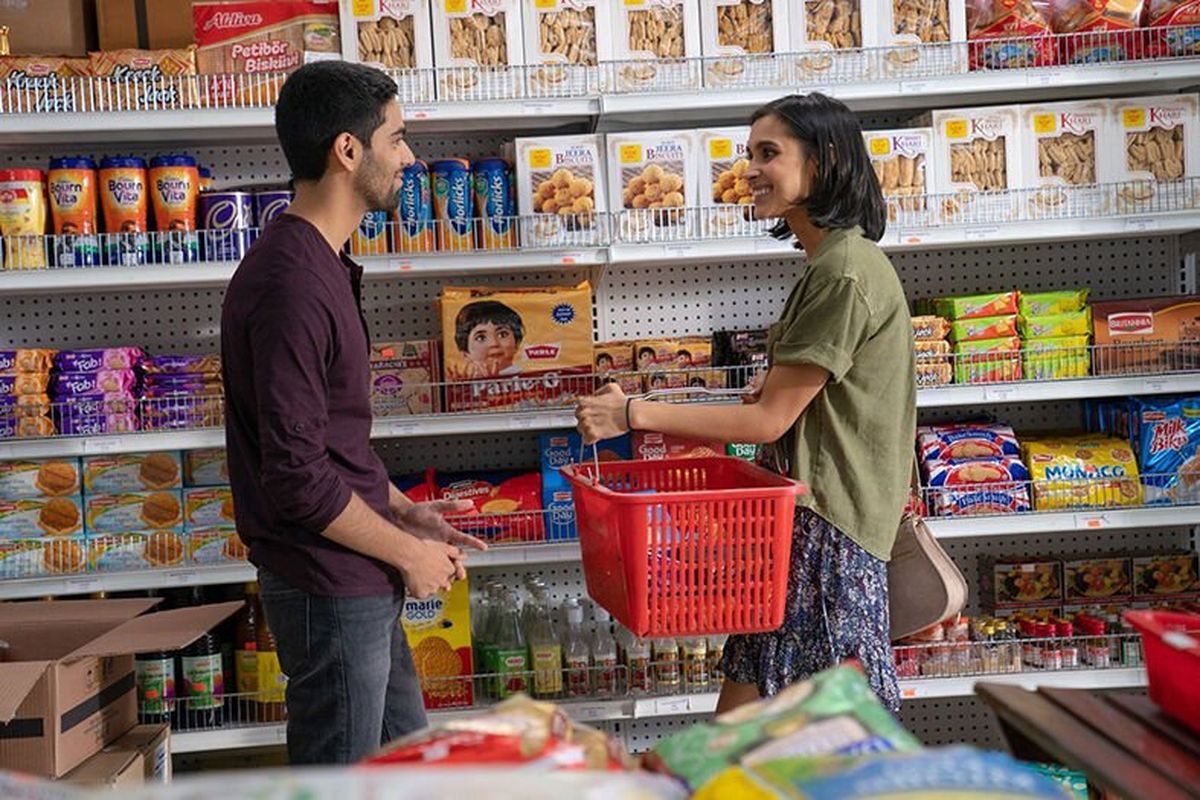Review: Drama ‘India Sweets and Spices’ finds nuanced flavor of class dynamics, family pressure

With representation comes pressure. Whenever a sometimes-marginalized community gets the chance to tell its story onscreen, expectations can be high. “India Sweets and Spices,” which looks at an Indian American family, takes that expectation and turns it on its head, giving us a more nuanced, complicated and problematic look at the people it’s about.
Written and directed by Geeta Malik, the film first introduces us to Alia Kapur (Sophia Ali of “Grey’s Anatomy”), the daughter of Indian immigrants Sheila and Ranjit (Manisha Koirala and Adil Hussain, both well-established names in Indian cinema). Alia’s relationship with her parents is strained because she fits into just enough of their boxes to be successful while missing just enough to be frustrating.
For example: She’s an honors student at UCLA, but she drinks, doesn’t maintain her eyebrows and is outspoken about the sexism and classism she sees among her parents’ wealthy friends. When she returns home to suburban New Jersey for summer vacation, she’s subject to Jane Austen-esque parties, all of which blend together. The same people gossip about the same things – mostly who’s married whom and when – while subtly trying to outshine one another with their own polished perfection.
Once, while on a trip to the local Indian market, Alia spots an attractive young man, Varun Dutta (Rish Shah), and, to get to know him better, invites him and his parents – who own the market – to a family party. It’s a minor scandal because the working-class Duttas don’t fit in with the Kapurs and their wealthy circle. It becomes even more scandalous when Varun’s mother (Deepti Gupta) turns out to know Alia’s mom from India and harbors more than a few secrets about her.
It would have been easy for the filmmaker to make Alia the woke, Americanized hero of this story, but Malik wisely avoids that trap, at first subtly, and then more overtly. Alia eventually learns that the appearance of her parents’ lives is more nuanced than she thought. But Malik also reveals that Alia is completely unaware of her own privilege and how it affects others.
When she invites the Duttas, it never occurs to her that the invitation might make them uncomfortable, as well. (They feel obligated to accept and then feel out of place when they arrive.) As much as Alia chafes against the rules of her world, she also knows how to navigate them, and she’s thrown off balance when others don’t.
Unfortunately, such sharp subtlety doesn’t carry through the entire movie. While the major characters are written and performed with beauty and complexity – particularly by Koirala as Alia’s mother – the minor characters are more broadly drawn. Revelations about them, for instance, don’t feel particularly, er, revelatory. Most of the twists and turns are relatively predictable, delivering a light buzz rather than an intense shock.
It’s not my place, as an outsider, to comment on the authenticity of “India Sweets and Spices.” But Malik has created a world that feels very real, ably communicating its occasionally frustrating and deceptively complex contours. There are some good laughs to be had, some good lessons to be learned and room to discuss the importance of being allowed to be imperfect.